BUSINESS & ECONOMY
Legitimacy of Values during Climate Change
Published
2 years agoon
By
Editor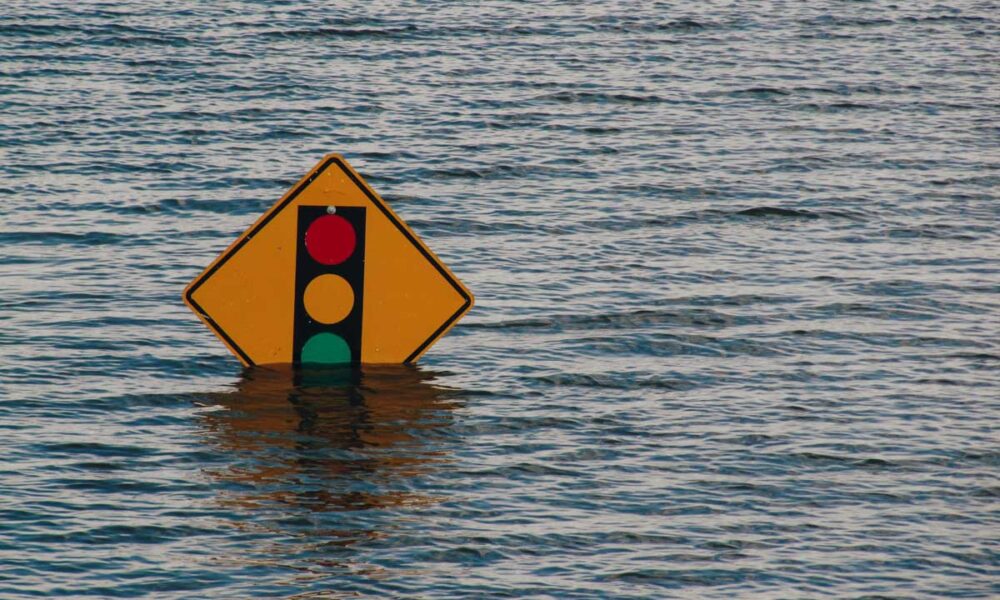
Post-industrial and neo-technological societies have rigorously separated the stories of cultural values and those of the earth’s nature and climate. Human civilizations have been fully dependent on the wilderness of nature and the particularities of climate for their survival and success for millennia. It is understandable that this decoupling in the 20’th century was inevitably perceived as a desirable outcome. For some years now these two stories are coming together once again meshed by the increased unpredictability and volatility of extreme climate events and their recorded and proven impacts on society at large. They are coming together at a time of repeated signs of perceived and real social and economic fragility, which if not absorbed and equitably remediated may trigger systemic changes. Many complex constructs are used to define systemic change. Among them are some traditional ones of economic shock and of increased volatilities in financial markets. More tangible and physical constructs appeal to unique economic issue such as of the widening gap in insurance coverage. Most recently some modern constructs of climate inequality bring together the stories of nature and social issues on the same conceptual and policy plane. All of these constructs and stories contain an element of social fragility. These formalized concepts are part of a language, which is built to abstract from reality and to adapt to academic, scientific and policy research and its consecutive conversations. Yet, these are not only theoretical constructs, but also tangible stories describing social catastrophes already experienced in recent historical realities. The misfortunes of climate change, pandemic and armed conflict emphasize the fragility of our modern society. These experiences of stress, destruction and loss have vividly erased the distinction between the economic and political impact of natural, health and man-made catastrophes and the sheer human disaster and suffering. They have also raised the need for an immediate examination of the sustainability and legitimacy of many current cultural norms. This process of examination is intended to lead to a proposition that for a cultural norm to be legitimate it must be found socially sustainable and socially resilient. The resilience of a social system becomes a requirement for its own legitimacy. It is well understood and accepted that a social order must protect the life, property and essential liberties of the people who belong to it to be found legitimate. The cultural definition of social resilience and sustainability may vary to some degree across geographical regions and political systems but there is some broad consensus. There is even less divergence in understanding that social resilience in itself becomes the indispensable foundation for systemic legitimacy.
Social resilience for the purpose of this analysis is defined as the ability of a society to adapt and absorb large shocks and externalities caused by excess climate volatility and unpredictability. In general resilience is achieved through preparation for extreme, highly unfavorable, and catastrophic outcomes oftentimes cascading through all nodes of the systemic structure. Systemic architects build tiers of reserves and pockets of conserved energy, which are designed to absorb catastrophic shocks. Still systemic reserves and endurance are an exhaustible resource. Once such resources are depleted, catastrophic shocks through a process of network contagion may have deep cascading effects into social and economic layers, previously considered riskless. Such impacts may lead to systemic collapse and full or partial reorganization of many systemic nodes and layers. The processes of collapse and reorganization may be gradual and of evolutionary nature, but it may also be of a sudden and catastrophic nature. In both cases social resilience towards environmental and climate shocks and catastrophes can never be infinite. Remediating the impacts of climate and natural disasters in an equitable manner becomes a common measure of societal endurance. The various degrees of this systemic ability to provide equitable remediation and then recovery from a catastrophic shock have become a comparative metric of systemic resilience. Systemic stability thus becomes a measure of the veracity of social and political systems. Once systemic and social resilience is brought into macro-economic and macro-financial policy discussions, there grows a need for providing a transition and mapping in definitions and measures. This is not a transition and remapping of exclusively and purely technical definitions. This transition is also about a redefinition of a cultural measure – being a measure of value, which must be associated with the legitimacy of current economic and political enterprises. Furthermore, this transition must be about providing information and a degree of evaluation of the durability and longevity of its underlining social establishment. A cultural measure thus must contain valued societal information. This transition is also required to both stimulate and defend the need for a revision of cultural values in such manner that they unquestionably enhance systemic legitimacy. This new dominion of cultural values must contribute to systemic sustainability and thus must have systemic resilience at its core to be legitimate.
The process of economic globalization at a time of lower climate predictability, at a time of growing volatility in extreme natural catastrophes provides this very ground necessary to intertwine the stories of nature and social values. These premises allow an examination of a twofold need for both redefinition of values and for reclaimed systemic legitimacy. The foundations of the current version of the global economy can be traced back to about forty years. The first phase of globalization is about economic growth and accumulation of wealth. It is about the advancement of technological knowledge and building of interconnectivity among regional and national financial, trade and economic systems. These were years of continuous economic growth. They fostered the progress of the established model and the acceptance of its very outcomes. The economic statistics of the period were convincingly reinforcing the intellectual and technical analysis. Absolute and per capita gross domestic product metrics were rapidly raising. The proverbial tide was lifting all boats – big and small. GDP growth as a measure of the economic effectiveness of the system assumed unlimited and boundaryless resources. This economic success blunted our intuition accumulated from historical experience and our historical cognition gained from studying natural sciences and mathematics. These exact sciences have always maintained that every physical system and every physical process have boundary conditions and limitations. Once these boundary conditions are breached, otherwise and previously stable systems and processes collapse or may perform in chaotic and shockingly unrecognizable manner. From first principles of system’s theory, it is established that breaking through one boundary condition may be sufficient to shock a system and throw it into a state of chaos or collapse. In the last two decades we have broken through three such boundaries of stability – these of efficient markets, of the resilience of global health, and of the predictability of the earth’s climate as a vital natural resource. The breach and exhaustion of these limits reveals previously hidden costs of our economic model at a time of disruption and instability. At present there is no recognizable political system, which can survive, let alone succeed without economic growth being its primary objective. Furthermore, for three centuries, since the onset of the industrial revolutions, the expansion and intensity of our drive towards growth and wealth rendered to second order the values of environmental protection and maintaining the stability and predictability of the earth’s climate.
In this inevitable entanglement of risk factors, cultural values and measures of systemic legitimacy, there is a critical component, which is rarely discussed. This is the impact of moral hazard. The scenario of its emergence has been experienced previously in other settings and can be foreseen with certainty. The measurements of disaster and shock in health and economic systems and their contagion effects upon social fragility have been observed and presented to the public discourse. Counter measures of remediation are also defined and refined. Both types of measures are examined and validated by technical and political authorities and thus may become reflected in established policy. During this process there is an element of moral hazard of such policy innovation being implemented only in physical, statistical, economic and health metrics but not yet becoming deeply embedded in cultural values, that are well accepted in society. It is still by no means necessary that this process of exploration, investigation, and policy definition in itself will lead to a transition in cultural values. There is no mandatory social provision or entity that requires this transition to take place or makes it inevitable. Such a transition to a new set of cultural values cannot be mandated. It cannot be enforced. If moral hazard is allowed to become the preponderant ethical concern in the process of value transition, itself accelerated by rapid systemic change, then systemic legitimacy will be endangered. Thus, the only mechanism which remains to facilitate a transition to a new set of moral values is a widely accepted necessity at all societal levels to ensure the survival of systemic legitimacy.
The development of the global economic system is one process where an emerging transition and mapping of new cultural values may express itself for observation. A transition and remapping of value must then overwhelm all other considerations to become embedded in the values representing the second phase of globalization. The only intellectual force which is capable of accomplishing this drive is the search for systemic survival and legitimacy. By this logic the second phase of globalization should establish itself to be about managing common and existential threats from natural catastrophes and extreme climate events as much as it would be about economic growth and wealth accumulation. A new global economic system is thus deemed timely for design. This one must balance twin objectives – growth and wealth creation on one side with sustainability and preservation of natural, human and climate resources on the other. The importance of balance among these two objectives is undisputable. However, the instruments of balance are far from being yet available. The current economic model is fully and well equipped with all the instruments and techniques of causing a profound disbalance. To pursue the objective of economic growth and accumulation of wealth tools and frameworks refined over hundreds and in many cases over thousands of years are well established. These are goods, commodities and financial markets with their domestic and international trade agreements and their investment and growth policies. The mastery of economic growth presents a danger of allowing self-deception to grow in society of its mastery over nature. The lessons learned every day from climate science reveal elemental forces that can bring about a redefinition of the path of civilization. These same earth and physical sciences show society with every newly compiled scientific report that the story of growing climate unpredictability and its adverse outcome of extreme catastrophic events is also a human story. Balance rather than mastery should be the only sustainable and legitimate principle in the further development and unfolding of this story. To pursue a balance with a new set of values, which center on preserving natural and climate resources, at present society is inadequately, and better still, quite ill equipped for the task. We are unequally equipped to pursue balance and hence the most likely outcome is disbalance and inequality of outcomes. The hard task has become not whether and when but how to find with urgency a new set of moral values which will underwrite this story of balance and stability.
Our current civilization and its economic model have honed and perfected instruments and processes for economic growth for many years. This drive to succeed economically to accumulate wealth has become genetically engrained in many who subscribe to the values of contemporary civilization. It has become a part of the human story. So far this has been a tremendously positive story of our civilization. Now a time has come, where a natural resource upon which this drive depends so thoroughly and unequivocally, namely the predictability of earth’s climate, has run short of its previously unquestioned stability. There are no social preparations for this turn of things. A comparison is highly illustrative between the enormous accumulation of tools, treaties, international and state structures on trade, development, and investment to what we have to manage and balance a newly defined instability. The modern pace of knowledge creation and technological development allows states, societies in general, to quickly build a comparable machinery of institutions, treaties, and processes for managing this risk, and to ensure sustainability and predictability of this natural resource of earth’s climate. This can be done in a relatively short period of time.
The essence of these two human activities – the pursuit of economic growth and the preservation of a fundamental natural resource, defined as the stability and predictability of climate can no longer be mutually exclusive. Societies have trained themselves to succeed in the former for many generations and yet they are only in the first generation to face the need to be equally effective in the latter. The time of a single generation must be sufficient to raise a civilization to the magnitude of this task. This amounts to a shift in cultural values. The definition of economic success must and will continue to encompass growth and wealth accumulation. An updated and modern definition must balance these with environmental sustainability, personal and public health, and general well-being. Market and economic stability and success are no longer sufficient to define systemic success. This transition of values must hold true at the level of the corporation, the public sector, an administrative region and even the sovereign state and the international institution. The interconnections between the lack of climate predictability, excess climate volatility and the emergence of new frameworks of values in economic and political activity are not straightforward and linear. Herein the technical definition and social perceptions of the concept of systemic stability are changing. The new and emerging technical definition implies moral sentiment. Work aimed at accomplishing the definition of systemic success is a work to gain ownership of the present and the future. The criteria of systemic stability now become a set of shared values and shared technical definitions. While technical definitions are much easier to change values alter through a much slower process of evolution, transition, and remapping. Organizations, regions, states which can provide this desired stability will be defined and accepted as successful both in economic and social terms. The alternative will be considered systemic failures. If an institution cannot be the source of its own stability and sustainability, then it is by all laws of nature and economics a failed entity.
The mechanics of markets, trade, and investment work without the intervention of a hegemon. Nonetheless they tend to have self-correction and recovery memories and capabilities and thus provide their own state of stability. However, at present, both cultural traditions and market frameworks are missing a moral sentiment needed for fostering sustainability and recovery of a natural resource as vital as climate stability and predictability. Only until recently, this resource was deemed to be boundless. The transition and remapping of values will require that now this resource is seen as a basic tenet of the legitimacy of social cultures. In a broader perspective it is evident that climate issues are local, institutional, and individual and they impact communities and organizations differently. Thus, for a transition to a new set of cultural values to take place the work and preparations needs to take priority. The lack of a globally accepted framework and a hegemonic plan of action with an existing philosophical current deeply vested in resolving these challenges emphasizes the need for collaboration. Resolving and managing a global crisis of an essential natural resource without core and periphery, without clearly defined geographical and social hierarchies is a collaborative effort of the largest possible scale. A framework of collaboration will withstand the pressures of chaotic action born from the lack of rigid contractual frameworks. This collaboration is vitally needed at all systemic levels – the state and region, the corporation, university, and the non-governmental, civic, and military institutions.
In a new regime of torrential change in a global system lacking a pronounced hegemon, agreement is unsurprisingly hard on who should bear the cost of action. In such a circumstance there simply cannot be an authoritative prescription of who should define the mitigation of risk and its consequences. On the level of cultural and social values there cannot be an authority which demands the right and the obligation to change a person’s or a social group’s way of life. Hence it is essential to treat global climate risk as a unifying concept of common human heritage. The concept must be allowed to evolve into an item of collaboration and to allow various degrees of its adoption. Out of this collaborative effort climate and health stability fostering services would be generated and simultaneously would become sources of newly created economic and social wealth. This new kind of wealth creation is driven by both the self-interest of all actors, and by the process of collaboration and collective understanding of the vital challenges at hand. Systemic stability, which includes climate and health factors relies for its success and endurance on this accumulation of self-interest and collective interest. At the human level this is an opportunity to connect the story of society and its desire for growth and its hidden pitfalls with the story of the tremendous power of the earth’s nature and its climate. Particularly in the advanced post-industrial and neo-technological societies these stories have been kept far apart for far too long. The excess volatility of climate, the accumulation of knowledge on the impacts of climate’s unpredictability are creating a societal opportunity to rethink these two stories. We must weave them together again, as our ancestors have always done this in the past.
Related
You may like
-
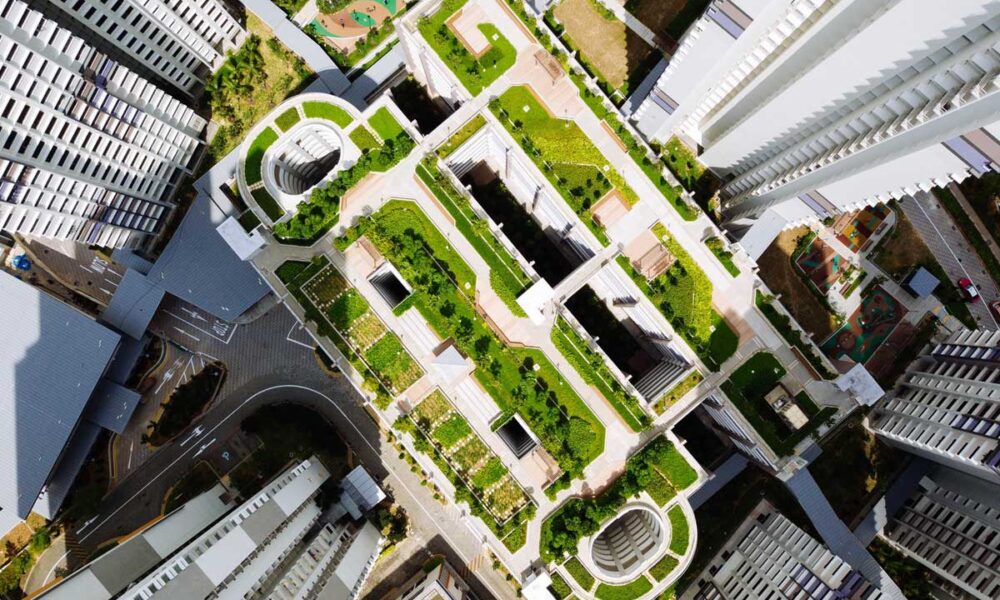

WEF and UN-Habitat Join Forces to Unlock Critical Investment in Cities through Public-Private Collaboration
-


5 ways countries can adapt to the climate crisis
-


The Development of Artificial Intelligence in China: Conclusions
-


Four ways the planetary crisis is impacting mental health
-
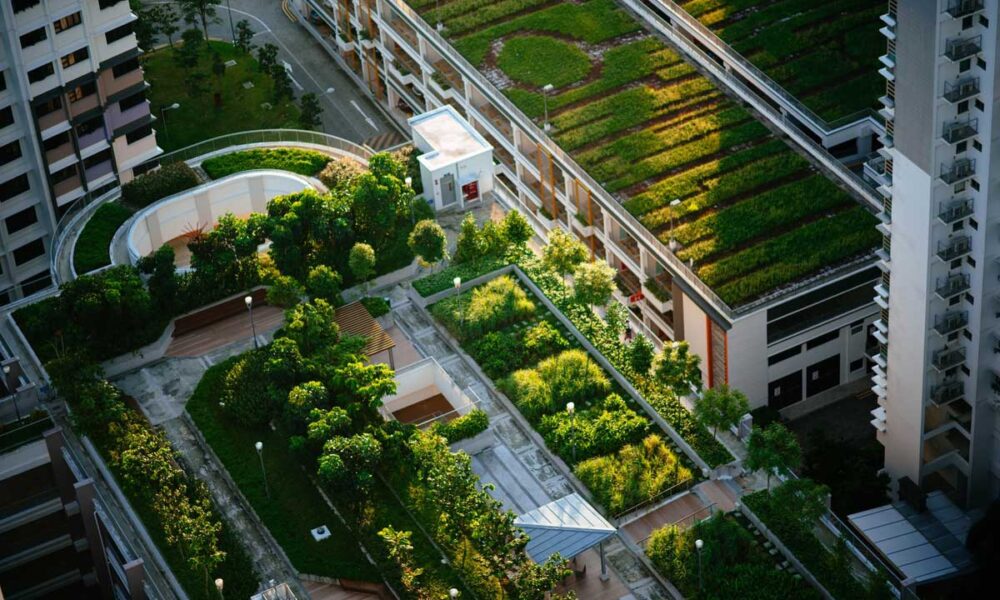

New European Bauhaus under Cohesion Policy: €50 million call for innovative projects in cities
-


The Development of Artificial Intelligence in China: Investment and attention to production
BUSINESS & ECONOMY
IsDB President Advocates for Cultivating Entrepreneurial Leaders
Published
3 days agoon
April 30, 2024By
Editor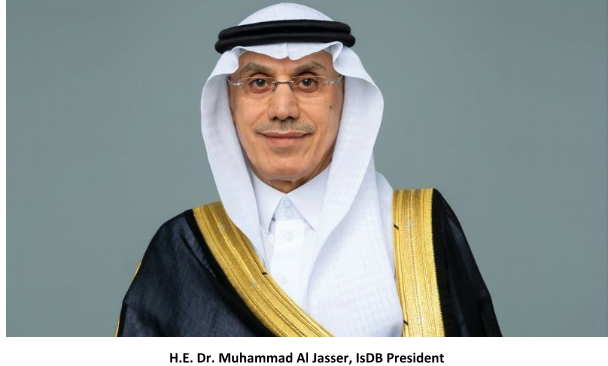
By Hafiz M. Ahmed
The 18th Global Islamic Finance Forum recently served as a prominent platform for discussions on advancing Islamic finance and fostering leadership in the entrepreneurial sector. During this notable event, the President of the Islamic Development Bank (IsDB) emphasized the critical need for nurturing entrepreneurial leaders to propel the growth of the Islamic finance industry. This blog post explores the insights shared by the IsDB President, the implications for the future of Islamic finance, and the strategies proposed to develop the next generation of leaders.
Key Highlights from the Forum
The Global Islamic Finance Forum, held annually, brings together experts, policymakers, and stakeholders from across the world to deliberate on the challenges and opportunities within Islamic finance. This year’s focus on entrepreneurial leadership underscores the sector’s evolution and its growing impact on global economies.
The IsDB President’s Vision
- Empowering Entrepreneurs. The IsDB President outlined a vision where empowerment and support for entrepreneurs are paramount. He highlighted the role of Islamic finance in providing ethical and sustainable funding options that align with the principles of Sharia law, offering a robust alternative to conventional financing methods.
- Education and Training. A significant part of the address was dedicated to the importance of education and specialized training in Islamic finance. The President called for enhanced educational programs that not only focus on the technical aspects of Islamic finance but also foster entrepreneurial thinking and leadership skills among students.
- Innovation in Financial Products. Recognizing the rapidly changing financial landscape, the call for innovation in designing financial products that meet the unique needs of modern businesses was emphasized. These innovations should aim to enhance accessibility, affordability, and suitability for diverse entrepreneurial ventures.
- Collaborative Efforts. The IsDB President advocated for increased collaboration between Islamic financial institutions and educational entities to create ecosystems that support and nurture future leaders. This collaboration is essential for developing a holistic environment where aspiring entrepreneurs can thrive.
- Supportive Policies: Lastly, the need for supportive governmental policies that facilitate the growth of Islamic finance was discussed. Such policies should encourage entrepreneurship, particularly in regions where access to financial services is limited.
Implications for the Future
The advocacy for entrepreneurial leaders in Islamic finance is timely, as the industry sees exponential growth and wider acceptance as a viable financial system globally. Cultivating leaders who not only understand the intricacies of Islamic finance but who are also capable of innovative thinking and ethical leadership is crucial for the sustainability and expansion of this sector.
Steps Forward
- Integrating Leadership into Curriculum: Educational institutions offering courses in Islamic finance should integrate leadership training into their curricula.
- Mentorship Programs: Establishing mentorship programs that connect experienced professionals in Islamic finance with emerging leaders.
- Fostering Start-up Ecosystems: Creating supportive environments for start-ups within the Islamic financial framework can encourage practical learning and innovation.
Conclusion
The call by the IsDB President to nurture entrepreneurial leaders in Islamic finance is a step toward ensuring the sector’s robust growth and its contribution to global economic stability. By focusing on education, innovation, and supportive policies, the Islamic finance industry can look forward to a generation of leaders who are well-equipped to navigate the complexities of the modern financial world and who are committed to ethical and sustainable business practices. This vision not only enhances the profile of Islamic finance but also contributes to a more inclusive and balanced global financial ecosystem.
BUSINESS & ECONOMY
Davos Really Comes to the Desert as the WEF Arrives in Riyadh
Published
3 days agoon
April 30, 2024By
Editor
By Frank Kane
The World Economic Forum’s “Special Meeting” got off to a comparatively low-key start in Riyadh on Sunday – the first time Saudi Arabia has staged a full-blown WEF event after a few years of dancing around issues on both sides. Would the security-conscious Saudis allow the “men from Switzerland” the freedom to organise potentially controversial discussions with the abandon they sometimes display in Davos?
Would the Swiss be sufficiently aware of the red lines in the kingdom, all the more vivid in times of heightened regional geopolitical tensions?On the evidence of Day 1, there was sufficient give-and-take on both sides to produce a valuable and thought-provoking addition to the global forums circuit – even if it lacked some of the pizzazz of the Future Investment Initiative gathering known as “Davos in the desert” and the anarchic round-the-clock buzz of the WEF’s annual meeting in the Swiss Alps.
It was certainly smaller and less crowded than the other two events. The Saudi Royal Guard, who assumed responsibility for security at the Ritz-Carlton conference complex, ensured an orderly event, although some members of the international media had difficulty getting the necessary security clearance.
The theme of the two-day forum is “global collaboration, growth and energy for development”, which is a neat way of encapsulating the biggest issue of the day in global economic and politics: will geopolitics derail progress on climate change and economic development?
Saudi Arabia – at the cockpit of those tensions in the Middle East and a leading energy exporter – is the perfect place to consider the question. Mohammed Al Jadaan, the Saudi finance minister, set the tone in an early panel session with the grave warning that ”geopolitical risks are possibly the No 1 risk as you look at the global economy” and urged “agility” by policymakers to head off the threat.
Kristalina Georgieva, managing director of the International Monetary Fund, which is due to open a regional office in Riyadh, hammered home that message in a neat bit of alliteration: “We may end up with this decade being remembered as the Turbulent Twenties, or the Tepid Twenties, when what we actually want is the Transformational Twenties.”
The first of many “elephants in the room” – the risk of confrontation between Israel and Iran arising from the conflict in Gaza – was recognised when Mahmoud Abbas, the Palestinian president, arrived at the opening plenary session. No stranger to the Davos circuit, Abbas repeated his call for the US to push for a two-state solution, saying it was the only way to end the conflict. “Only they can do it,” he declared.
Kristalina Georgieva, IMF managing director, told the forum the decade should be remembered as ‘the Transformational Twenties’ Most of the WEF’s overarching themes came together in the first big set-piece devoted to energy. The session was called “People, policy, finance: realising an equitable energy transition” – and there were elephants aplenty in the chandeliered cavern of the plenary hall.
The hydrocarbon giants were well represented by Prince Abdulaziz bin Salman, Saudi Arabia’s energy minister, and his Qatari counterpart Saad Al Kaabi, as well as Darren Woods and Vicki Hollub, CEOs of ExxonMobil and Occidental, respectively. You had to feel sorry for Kadri Simson, the Estonian politician and EU energy commissioner, as she pitched a decidedly different view from her co-panellists. But Børge Brende, the WEF president and the session’s moderator, did his best to even up the odds. It was a clash between those destined for either “hydrocarbon hell or green heaven” – in the unattributable sarcasm of one senior energy policymaker – and though the debate stayed within civilised bounds, it had its moments.
Al Kaabi accused the environmental lobby of “demonising oil and gas for decades”; Woods called for an end to the “propaganda and politics”. The panel became heated when it came to the issue of what was the real “elephant in the room”. Was it coal? Or the cost of energy transition? Or subsidies for fossil fuels? Prince Abdulaziz cut through the rhetoric with the announcement that he had detected the “camel in the room”: the fact that the campaign against climate change cannot be waged within national boundaries, but has to be global.
Towards the end of the day a frisson went through the forum as it was whispered that Crown Prince Mohammed bin Salman, Saudi Arabia’s prime minister and the patron of the event, was on his way. He duly arrived, oversaw a private meeting of forum dignitaries and departed, with much security fanfare.
At the end of Day 1, I was just a little underwhelmed. The clinical Swiss lines of the WEF signage did not quite gel with the Arabic splendour of the King Abdulaziz International Conference Centre. I’m sure it just needs time.
Frank Kane is Editor-at-Large of AGBI and an award-winning business journalist. He acts as a consultant to the Ministry of Energy of Saudi Arabia and is a media adviser to First Abu Dhabi Bank of the UAE
BUSINESS & ECONOMY
Dangote, Air Peace and the Patriotism of Capital
Published
1 week agoon
April 23, 2024By
Editor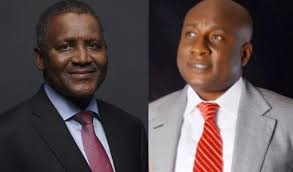
By Chidi Amuta
Money is perhaps a homeless vagrant. It has no nationality or permanent homestead in real terms. It goes and stays only where its masters are wise, prudent and far sighted. But in a world dominated by nations and their interests, real money is first a national asset and tool of governance and sovereign assertion. When money thus becomes a source of power, the nation whose flag the conquering company flies shows up to claim its own. Apple, Microsoft, Tesla, Coca Cola are synonymous with America. It is not because every American can walk off with a can of Coke from the supermarket without paying for it but because somewhere along the way, brand and nation have become fused and interchangeable. Every successful Business may aspire to an international identity but when the chips are down, every successful business needs to be anchored first on a specific sense of sovereign belonging. Ultimately, then, the companies to which sovereign wealth is usually ascribed have a final responsibility to that nation or sovereignty in times of trouble or goodness.
Make no mistake about it. Businesses are in business to succeed as businesses. To succeed as a business is to make tons of profit and invest in even more business and wealth creation. Sensible companies do not always overtly toe the government’s line. They instead buy into the hearts and minds of the citizens through the products they offer and how friendly their prices are.
Two Nigerian brands have recently stepped forward to identify with the citizens of our country in this moment of grave challenge and desperate self -inflicted hardship. Dangote and Air Peace are now on record as having risen to use their products, brand presence and pricing strategies to identify with and ameliorate some of the harrowing difficulties that Nigerians are currently going through.
The worst moments of our present economic travail may not be over just yet. The epidemic of hunger still looms over the land. Innocent people are still being trampled to needless death at palliative food centers. Some are getting squeezed to death while scrambling for tiny free cash. Inflation figures just got even worse at over 33.4%. Those who fled the country in awe of rampaging hardship have not yet started returning or regretting their decisions to flee. Most Nigerians, rich and poor alike, are still needing to be convinced that the curse of recent hopelessness can be reversed any time soon.
Yet out of the darkness and gloom that now pervades our national mood, a tinge of sweetness has begun to seep into the air. The exchange rate of the Naira to major currencies has begun heading south. The dollar, which at the worst moments in recent times exchanged for as low as N2, 300 to a US dollar, has climbed up in value. As at the time of this writing, a little over N1,000 can fetch you the same miserable US dollar. That may not sound like paradise yet since it is still worse than the worst of the Daura emperor. Most Nigerians are praying that Tinubu should minimally take us back to the Buhari days in terms of the exchange rate and relative food security. We are still far from there.
What has Dangote got to do with it all? The removal of fuel subsidy had unleashed an astronomical hike in energy and fuel prices. While motorists and transporters wept and wailed at the gas stations, the price of nearly everything else went through the roof. Since public power supply remains as epileptic or absent as in the 1970s or worse, we have been living in a virtual generator republic that is dependent on diesel and petrol generators. The price of diesel in particular jumped through the roof. Industrial production suffered just as transportation and haulage costs became unbearable. Every high cost was passed down to the suffocating hapless citizens.
Fortuitously, the gigantic Dangote refinery complex was coming on stream in a time of great difficulty. Somehow, the hope was alive that the Dangote refinery would come on stream with a bit of good news on the pricing of gasoline and diesel. But no one knew for sure what Mr. Dangote’s cost accountants had in stock especially with the devilish exchange rate that reigned in the first nine months of the Tinubu tenure.
Energy and fuel prices were off the roof. A liter of diesel went for as high as N1,650 in some places. Gasoline was not any better. Those who wanted to keep their homes powered from generators needed troves of cash to procure diesel whose prices kept going up as the dollar exchange rate escalated. Factories fared worse.
Refreshingly, Mr. Aliko Dangote whose mega billion dollar refinery in Lagos has just started producing petroleum products has a bit of good news for all Nigerians. He has reduced the price of diesel from the mountain pe58% to a more considerate N1,000 per liter, nearly a 58% reduction in price in less than a week. The prospect is good that when his gasoline products begin to flow through the pumps. Mr. Dangote may have even better news at the gas stations. Along with his fellow cement oligarchs had promised to deliver cement to Nigerians at a more friendly price. The full benefit of that promise is still a long way away.
It needs to be said in fairness to Dangote as a brand that more than any other single company in Nigeria, it has invested in the things that touch the lives of the people most immediately. Sugar, salt, fertilizer, tomato puree, fruit juices, cement and now petroleum products. No other single Nigerian brand can boast of a wider and more expansive range of socially relevant products than Dangote.
In direct response to the prevailing hunger and hardship in the land, Mr. Dangote has himself stepped forward to provide millions of bags of rice and other food items to Nigerians across the length and breadth of the country as humanitarian palliatives. In terms of the human face of capitalism, Dangote would seem to have perfected an enlightened self interest above his peers.
Just when life was about to gradually grind to a halt, a bit of good news has come from unusual quarters. In a nation that has grown dependent on a feeding bottle tied to the beast of external suppliers of everything from tooth picks to civilized coffee, the belief persisted that all good news can only come from abroad. Nigerians could only hope to enjoy more friendly prices for the things that make them happy if our foreign partners changed their mind. Not any more. It requires pointing out that the Nigerian spirit is too expansive to be bottled up within our borders just because air tickets are unaffordable. The urban- based Nigerian wants to go abroad for business, on holidays or just to flex!
At the worst of the recent moments, a return Economy Class ticket to nearby London sold for as much as N3.8m-N4million. Major international airlines insisted that the Central Bank had seized and was sitting on their dollar ticket sales proceeds. They needed to keep the high fares to hedge against the uncertainties that were everywhere in the Nigerian air. Nigerian travellers were being punished for the bad fortunes of their national currency and the untidy book keeping habits of the Central Bank.
Almost from nowhere, Nigeria’s largest international airline, Air Peace, announced a low fare flight into London’s Gatwick Airport. The airport itself is also owned by a Nigerian businessman. The fares were unbelievably low, as low as N1.2 million in some cases against the exploitative fares of all the major foreign airlines plying that route. Unbelievably, Air Peace pulled off the London Gatwick deal with quite a bit of fanfare and patriotic noise making that set the foreign competitors scampering back to the drawing board. Air Peace floated the Gatwick fare reduction as a patriotic act, more like social responsibility to fellow Nigerians than the plain business sense which is what it really is. It was a drive for volume in a market of low volume driven by high fares.
To drive home the patriotic edge of its revival of international flights, Air Peace rebranded its crew and adorned its senior cabin crew with uniforms that featured the traditional Igbo “Isi Agu” motif. For those who are hard at hearing, the Isi Agu motif on Nigerian traditional outfits is of Igbo ancestry just as the Aso Oke, Adire and Babanriga are South Western Yoruba and Northern Hausa-Fulani respectively. A Nigerian airline intent on striking a recognizable indigenous resonance and identity could adapt any combination of these traditional dress motifs to drive home its original and national identity. The isi Agu features a series of lion heads, obviously severed at a moment of unusual valor. To go on a hunt and successfully kill and decapitate a lion is an undisputed symbol or infact a metaphor for unusual valour and heroism among the Igbo. Therefore the choice of that motif by Air Peace in its new cabin outfit is in fact a modern statement on the unusual heights to which Nigerian enterprise can rise if inspired by a patriotic commitment to national greatness. The Isi Agu is therefore Nigerian national heroism captured in an outfit.
In their recent pricing strategies, neither Dangote nor Air Peace has acted out of pure charity or patriotic feeling. Both are reacting to the pressure of latent demand in a market where the purchasing power has been depressed by economic difficulty brought about by government policy and political exigencies. Yet each of them is intent on being seen as acting out of altruistic patriotic motives. That may be true in the short term.
For every liter of diesel sold, Dangote is saving the Nigerian consumer 60% of the current market price. A savings of 60% is a lot for households and businesses. Similarly, for every Economy Class ticket sold by Air Peace on the London route, the average Nigerian traveller gets to save between N1.3million-N1.6 million. That is an awful lot of relief which travellers can apply to other competing needs in these hard times. No one can deny that these are direct savings and benefits that accrue directly to Nigerian citizens. To that extent, both Dangote and Air Peace can be said to be applying their capital to serve a patriotic end.
It is common capitalist gimmick for companies to apply a percentage of their profit to pursue communally beneficial ends in their territory of operation. Oil companies build schools, hospitals, libraries and other socially beneficial infrastructure in their catchment localities. In normal corporate parlance, that only qualifies as Corporate Social Responsibility (CSR) or targeted social beneficence.
But Dangote and Air Peace are doing something a bit more far reaching. They are shedding handsome percentages of their revenue and therefore profit to fellow Nigerians at a time when such savings are desperately needed and deeply appreciated. That is an instance of capitalism serving a patriotic end over and above its statutory tax obligations to the government. This should be commended.
It does not, however, make these companies any less rapacious as capitalist ventures than any others. They may in fact be investing in better times and bigger profits when the bad days are over. They are investing in the goodwill of the market and therefore deepening their brand penetration and mass sympathy. These are strategies which are far sighted marketing ploys that dig deep into the hearts and minds of generations of consumers.
Ultimately, every capitalist is like a cat; selfish with nine lives and prone to inherent cunning. But, as former Chinese leader Deng Zao Ping said when embracing the free market for his long standing communist nation: “A cat is a cat. It does not matter whether it is a black cat or a white cat. For as long as it catches mice, it is a good cat.”
Dr. Amuta, a Nigerian journalist, intellectual and literary critic, was previously a senior lecturer in literature and communications at the universities of Ife and Port Harcourt.

Nigeria is Pioneering a New Vaccine to Fight Meningitis – Why this Matters

Sudan’s Civil War is Rooted in its Historical Favouritism of Arab and Islamic identity
IsDB President Advocates for Cultivating Entrepreneurial Leaders
Topics
- AGRIBUSINESS & AGRICULTURE
- BUSINESS & ECONOMY
- DIGITAL ECONOMY & TECHNOLOGY
- EDITORIAL
- ENERGY
- EVENTS & ANNOUNCEMENTS
- HALAL ECONOMY
- HEALTH & EDUCATION
- IN CASE YOU MISSED IT
- INTERNATIONAL POLITICS
- ISLAMIC FINANCE & CAPITAL MARKETS
- KNOWLEDGE CENTRE, CULTURE & INTERVIEWS
- OBITUARY
- OPINION
- PROFILE
- PUBLICATIONS
- SPECIAL FEATURES/ECONOMIC FOOTPRINTS
- SPECIAL REPORTS
- SUSTAINABILITY & CLIMATE CHANGE
- THIS WEEK'S TOP STORIES
- TRENDING
- UNCATEGORIZED
- UNITED NATIONS SDGS
Trending
-

 TRENDING11 months ago
TRENDING11 months agoAFRIEF Congratulates New Zamfara State Governor
-

 PROFILE9 months ago
PROFILE9 months agoA Salutary Tribute to General Ibrahim Badamasi Babangida: Architect of Islamic Finance in Nigeria
-

 BUSINESS & ECONOMY3 years ago
BUSINESS & ECONOMY3 years agoThe Climate Crisis is Now ‘Code Red’: We Can’t Afford to Wait Any Longer
-

 BUSINESS & ECONOMY3 years ago
BUSINESS & ECONOMY3 years agoClimate Policy In Indonesia: An Unending Progress For The Future Generation
-

 BUSINESS & ECONOMY3 years ago
BUSINESS & ECONOMY3 years agoIPCC report: ‘Code red’ for human driven global heating
-

 HALAL ECONOMY10 months ago
HALAL ECONOMY10 months agoRevolutionizing Halal Education Through Technology
-

 BUSINESS & ECONOMY3 years ago
BUSINESS & ECONOMY3 years agoThe Black sea protection initiative: What should we remember?
-

 BUSINESS & ECONOMY2 years ago
BUSINESS & ECONOMY2 years agoDistributed Infrastructure: A Solution to Africa’s Urbanization

